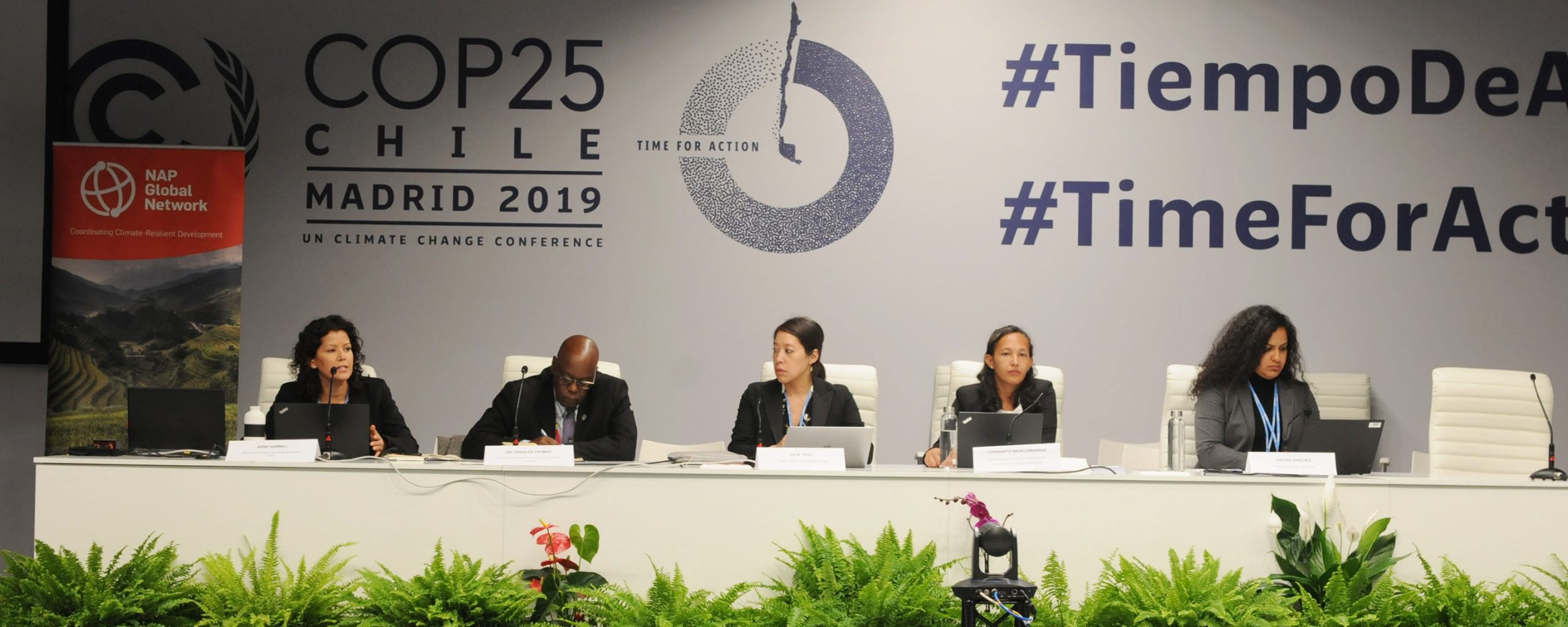
This event focused on ways in which the National Adaptation Plan (NAP) process can be leveraged for meeting the goals of the Paris Agreement, highlighting some developing country experiences.
Anne Hammill, Senior Director Resilience Programme, IISD, moderated the event. She presented the NAP Global Network, aimed at enhancing national adaptation planning and action in developing countries. The NAP process, she said, is a strategic process that enables countries to identify and address their medium and long-term priorities for adapting to climate change. She noted opportunities to leverage NAPs for updating and enhancing the adaptation component of nationally determined contributions (NDCs), developing an adaptation communication under Article 7 of the Paris Agreement, and adaptation sections of Biennial Transparency Reports (BTRs).
Amb. Spencer Thomas, Special Envoy for MEAs, Grenada, said his country’s National Climate Change Policy provides guidance for implementation of NDCs and NAPs. He noted that while Grenada’s NDC is mitigation-centric, there is a clear vision on adaptation in agriculture, waste, energy, and water resources.
Julie Teng, UNDP, presented information from a 2019 publication with the World Resources Institute (WRI), “Enhancing NDCs,” which is a guide to strengthening national climate plans. Outlining steps for enhancing the adaptation component of NDCs, she noted the need to, inter alia: analyze links with other processes; determine relationships to enhance the adaptation communication; and identify and integrate elements for inclusion in NDCs.
Lovakanto Ravelomanana, Ministry of Environment and Sustainable Development, Madagascar, reported that her country’s mitigation strategy aims to reduce emissions by 14% by 2020. She highlighted her country’s National Policy on Climate Change, which promotes strategies to reduce climate change vulnerability. She outlined national consultations held in 22 regions to consolidate views on the NAP, including areas of vulnerability and challenges.
Navina Sanchez, Climate Change Policy Adviser, GIZ, underscored the need for linkages between the adaptation communication and the BTR, and highlighted GIZ’s support for developing countries for adaptation reporting.